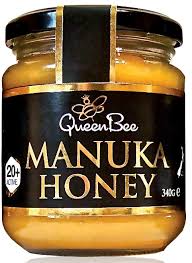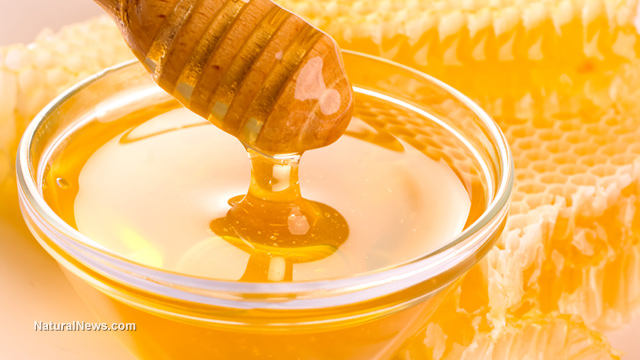
Breaking News
 Starfleet Academy CANCELLED? Ratings DISASTER Gets So Much Worse!
Starfleet Academy CANCELLED? Ratings DISASTER Gets So Much Worse!
 Elon: This is why Democrats are panicking about immigration enforcement.
Elon: This is why Democrats are panicking about immigration enforcement.
 Americans are all asking the same question. When do Democrats start going to jail?
Americans are all asking the same question. When do Democrats start going to jail?
Top Tech News
 Researchers who discovered the master switch that prevents the human immune system...
Researchers who discovered the master switch that prevents the human immune system...
 The day of the tactical laser weapon arrives
The day of the tactical laser weapon arrives
 'ELITE': The Palantir App ICE Uses to Find Neighborhoods to Raid
'ELITE': The Palantir App ICE Uses to Find Neighborhoods to Raid
 Solar Just Took a Huge Leap Forward!- CallSun 215 Anti Shade Panel
Solar Just Took a Huge Leap Forward!- CallSun 215 Anti Shade Panel
 XAI Grok 4.20 and OpenAI GPT 5.2 Are Solving Significant Previously Unsolved Math Proofs
XAI Grok 4.20 and OpenAI GPT 5.2 Are Solving Significant Previously Unsolved Math Proofs
 Watch: World's fastest drone hits 408 mph to reclaim speed record
Watch: World's fastest drone hits 408 mph to reclaim speed record
 Ukrainian robot soldier holds off Russian forces by itself in six-week battle
Ukrainian robot soldier holds off Russian forces by itself in six-week battle
 NASA announces strongest evidence yet for ancient life on Mars
NASA announces strongest evidence yet for ancient life on Mars
 Caltech has successfully demonstrated wireless energy transfer...
Caltech has successfully demonstrated wireless energy transfer...
 The TZLA Plasma Files: The Secret Health Sovereignty Tech That Uncle Trump And The CIA Tried To Bury
The TZLA Plasma Files: The Secret Health Sovereignty Tech That Uncle Trump And The CIA Tried To Bury
Deadly infections from medical devices could be ended by using Manuka honey

Deadly infections from medical devices could be ended by using Manuka honey

(NaturalNews) Manuka honey is a unique and highly beneficial type of honey produced in Australia and New Zealand by bees that pollinate the Manuka bush, also known as tea tree. Recently touted as a superfood, Manuka honey has been used by indigenous cultures for thousands of years to treat wounds and fight infections.
While the use of honey as a natural health remedy dates back centuries, science has recently taken an interest in the antibacterial and anti-inflammatory properties of honey, Manuka honey in particular.
A new study, published in the Journal of Clinical Pathology, found that Manuka honey could hold the key to keeping medical devices in hospitals bug-free. Medical devices connected to patients, such as urinary catheters, carry a high risk of infection.
Manuka reduces bacterial 'stickiness' and growth
Study co-author Bashir Lwaleed, of the Faculty of Health Sciences at the University of Southampton in the United Kingdom, and colleagues found that a dilution of Manuka honey could be used to halt the activity and growth of bacterial biofilms. These biofilms are groups of microorganisms that can adhere to surfaces and cause life-threatening infections.
To put Manuka honey to the test, the scientists cultured two strains of common hospital bacteria on 96 plastic dishes. Both Escherichia coli and Proteus mirabilis are known to cause urinary tract infections (UTIs) that can arise in patients with long-term catheter use.
After cultivation, the researchers applied different dilutions of Manuka honey and water to the bacterial cultures. After 48 hours of incubation, the team found that the lowest concentration of Manuka honey reduced the 'stickiness' – or the ability to stick to surfaces and develop a biofilm - of E. coli and P. mirabilis bacteria by 35 percent. After 72 hours all concentrations had reduced stickiness by at least 70 percent.
Furthermore, Professor Bashir Lwaleed and his team found that all dilutions of Manuka honey had reduced biofilm growth after just 4 hours.
Manuka can save lives
As reported by the Daily Mail Online, up to one in four inpatients may have to use a catheter. According to Professor Bashir Lwaleed, catheter infections account for a large proportion of hospital-acquired infections. These infections can be deadly and could - possibly - be prevented by flushing catheters with a honey dilution before use.
According to the Centers for Disease Control and Prevention (CDC), a whopping 75 percent of all hospital-acquired UTIs are caused by a urinary catheter.
"We hope that these results may offer an alternative way of preventing such infections. We believe that patients might also benefit from honey's anti-inflammatory properties, which are generally stronger in dark honey, such as Manuka, and that antibacterial resistance is unlikely to be a factor when honey is used," Professor Bashir said.
However, the authors of the study noted that their experiments only show how Manuka can reduce biofilm development or growth in laboratory conditions. Further studies in which clinical conditions more closely resemble the flow of liquid in the bladder are mandatory to prove honey's ability to fight hospital bacteria on medical tubes and devices

 The Lies Get So Tedious
The Lies Get So Tedious

